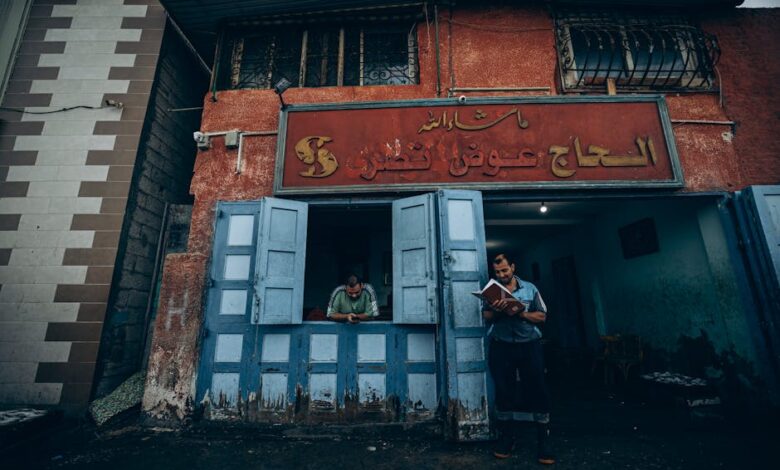The Luxembourg Encounter: A Win, But At What Cost?

In the high-stakes world of international football, a win is usually met with unbridled joy. But sometimes, even three points can leave a bitter taste, sparking more questions than answers. Such seems to be the case for the German national team, Die Mannschaft, following their recent 2026 World Cup qualifier against Luxembourg. While the scoreboard reflected a victory, the post-match sentiments, particularly from promising young talent Nick Woltemade, tell a different story – one of concern, self-reflection, and a looming sense of unease as a crunch match against Slovakia rapidly approaches.
Woltemade’s candid assessment, stating Germany was “not good,” echoes a sentiment that often reverberates through the footballing world: winning isn’t always enough. For a nation with Germany’s rich footballing heritage, the standard isn’t merely to win, but to dominate, to inspire, and to perform with a certain Teutonic efficiency that has historically defined their success. So, what exactly transpired in that qualifier, and why is a win against a lower-ranked opponent causing such a stir?
The Luxembourg Encounter: A Win, But At What Cost?
On paper, the fixture against Luxembourg should have been a straightforward affair for Germany. A comfortable victory, perhaps a few goals difference, and a chance for the team to fine-tune their tactics and build momentum early in their 2026 World Cup qualifying campaign. And indeed, Germany did secure the win. The scoreboard reflected what was expected, delivering the necessary points to kickstart their journey towards North America. Yet, the relief that typically accompanies such a result felt conspicuously absent, at least in the eyes of some.
Nick Woltemade, a player whose fresh perspective often cuts through the usual PR-speak, didn’t mince words. His observation that Germany was “not good” isn’t just a throwaway line; it’s a critical evaluation from within the squad. This kind of introspection, while perhaps uncomfortable, is vital. It suggests that the players themselves recognise a gap between their potential and their on-field execution. Was it a lack of intensity? Poor decision-making in key moments? Or perhaps a collective failure to break down a well-organised, albeit less experienced, Luxembourg side with the fluid, incisive football expected of a top-tier nation?
For football aficionados, a win against a team like Luxembourg often provides a baseline assessment. It’s an opportunity to see how well the team integrates new players, executes tactical plans, and maintains focus against less challenging opposition. When those elements appear disjointed or lacking, even a victory can feel like a missed opportunity. It plants seeds of doubt, not about the result itself, but about the underlying processes and readiness for sterner tests ahead. Woltemade’s comments serve as a poignant reminder that in elite sports, standards are measured not just by points accumulated, but by the manner in which they are earned.
Beyond the Scoreline: Decoding Woltemade’s Concerns
Woltemade’s remarks aren’t just a young player venting; they represent a significant observation about the German national team’s current state. For a squad often lauded for its disciplined approach and tactical prowess, any deviation from that high standard becomes immediately noticeable. His concern isn’t simply about the result – a win is a win – but about the qualitative aspects of the performance. This hints at deeper issues that can plague even the most talented teams: a lack of cohesion, perhaps some tactical uncertainty, or an inability to consistently perform at the required intensity for 90 minutes.
The Shadow of Recent History
German football has been in a period of rebuilding and re-evaluation following some uncharacteristically early exits from major tournaments. The pressure on the German national team to reclaim its former glory is immense, and every match, regardless of the opponent, is scrutinised for signs of progress or regression. A less-than-convincing win against Luxembourg, therefore, isn’t just an isolated incident; it’s viewed through the lens of recent struggles. It raises the uncomfortable question: are the lessons from past disappointments truly being learned and applied?
When a player like Woltemade speaks out, it often signals that the feeling of underperformance is shared within the dressing room. This collective awareness, while potentially unsettling, is also the first step towards improvement. It prevents complacency and ensures that the team doesn’t paper over cracks with superficial results. For supporters, it’s a double-edged sword: concerning to hear, but also reassuring that the players themselves are holding each other accountable and striving for better.
The coaching staff, undoubtedly, will be dissecting the match with microscopic precision, looking for the specific areas Woltemade alluded to. Was the midfield too easily bypassed? Did the defence show lapses in concentration? Were the attacking transitions too slow or predictable? These are the crucial questions that must be addressed swiftly, particularly with a much tougher challenge waiting on the horizon.
The Slovakia Showdown: A True Litmus Test
And that tougher challenge comes in the form of Slovakia. If the Luxembourg match was a gentle warm-up – or perhaps a wake-up call – the upcoming fixture against Slovakia will be a genuine examination of Germany’s readiness and capabilities. Slovakia is a far more robust opponent, tactically astute, and capable of punishing any deficiencies in Germany’s play. This is where Woltemade’s concerns could become stark realities if left unaddressed.
Against Slovakia, Germany won’t have the luxury of an opponent that might eventually buckle under sustained pressure, even if that pressure isn’t consistently applied. Instead, they will face a team that will contest every ball, close down spaces effectively, and look to exploit any German hesitancy or disorganisation. This match is crucial for multiple reasons: it’s not just about points, but about demonstrating a clear message to rivals, fans, and perhaps most importantly, to themselves.
What Germany Needs to Prove
For Germany, the Slovakia game is an opportunity to silence the critics and reassert their dominance. It’s about more than just winning; it’s about *how* they win. They need to show improved defensive solidity, a more dynamic and creative midfield, and clinical finishing in the final third. The intensity and cohesion that Woltemade found lacking must be evident from the first whistle to the last. This is the moment for the team to demonstrate that the Luxembourg performance was an anomaly, not a trend.
The 2026 World Cup qualifying campaign is a long road, but early performances set the tone. A strong showing against Slovakia, one that reflects Germany’s true capabilities, would not only secure vital points but also inject a much-needed boost of confidence into the squad. It would validate the hard work, calm the nerves, and begin to erase the lingering doubts sparked by the previous outing. Anything less, however, could amplify the concerns and make the path to the World Cup feel even more arduous.
The Road Ahead: Performance Over Complacency
Nick Woltemade’s frank assessment of Germany’s performance against Luxembourg serves as a timely reminder that in football, the pursuit of excellence is relentless. A win is always welcome, but it cannot mask underlying issues or foster a sense of false security. For a powerhouse like Germany, the standard is not just to qualify for major tournaments, but to arrive there as genuine contenders, playing a brand of football that reflects their pedigree and ambition.
The upcoming clash with Slovakia is more than just another qualifying match; it’s a pivotal moment for the German national team. It’s a chance to demonstrate growth, resilience, and a clear understanding of what it takes to perform at the highest level. The team’s ability to respond to Woltemade’s critique, and indeed to the expectations of an entire nation, will define not only this particular qualifying campaign but potentially their broader trajectory towards the 2026 World Cup. The spotlight is on, and all eyes will be watching to see if Germany can translate introspection into a commanding performance when it truly matters.





